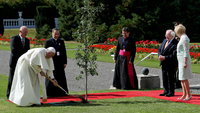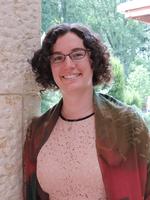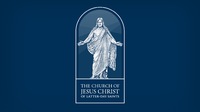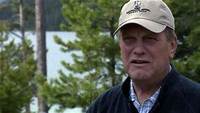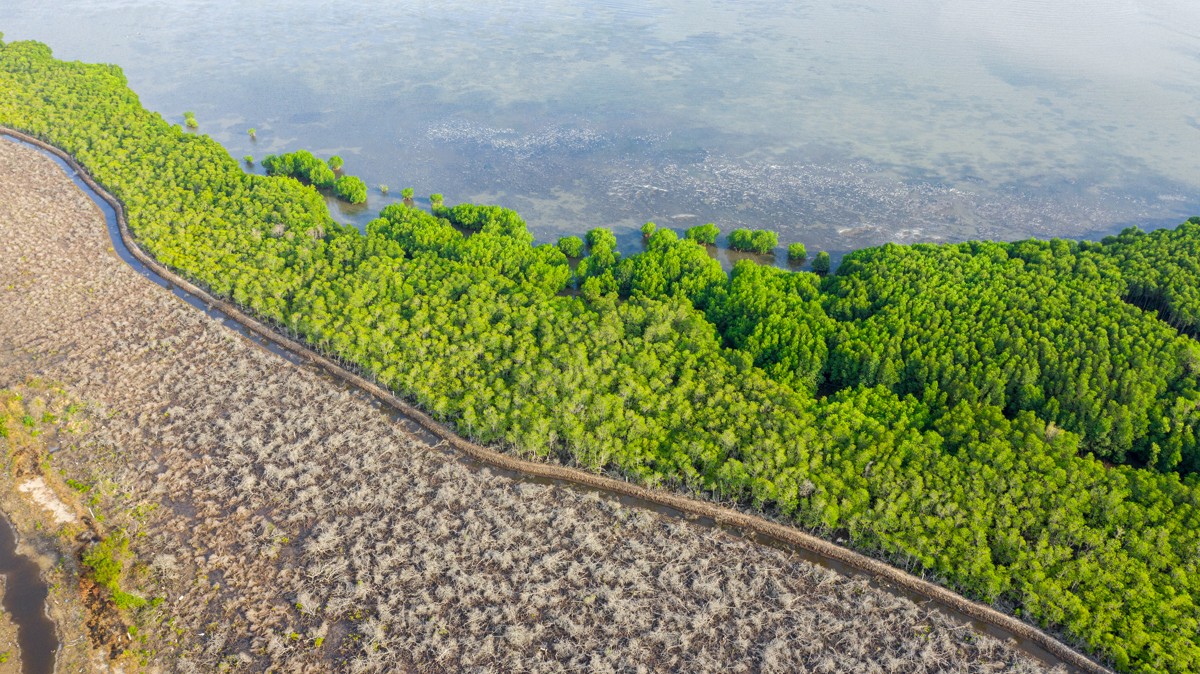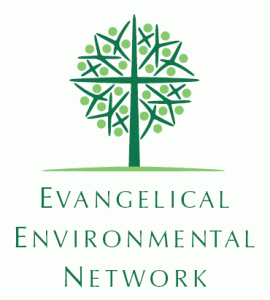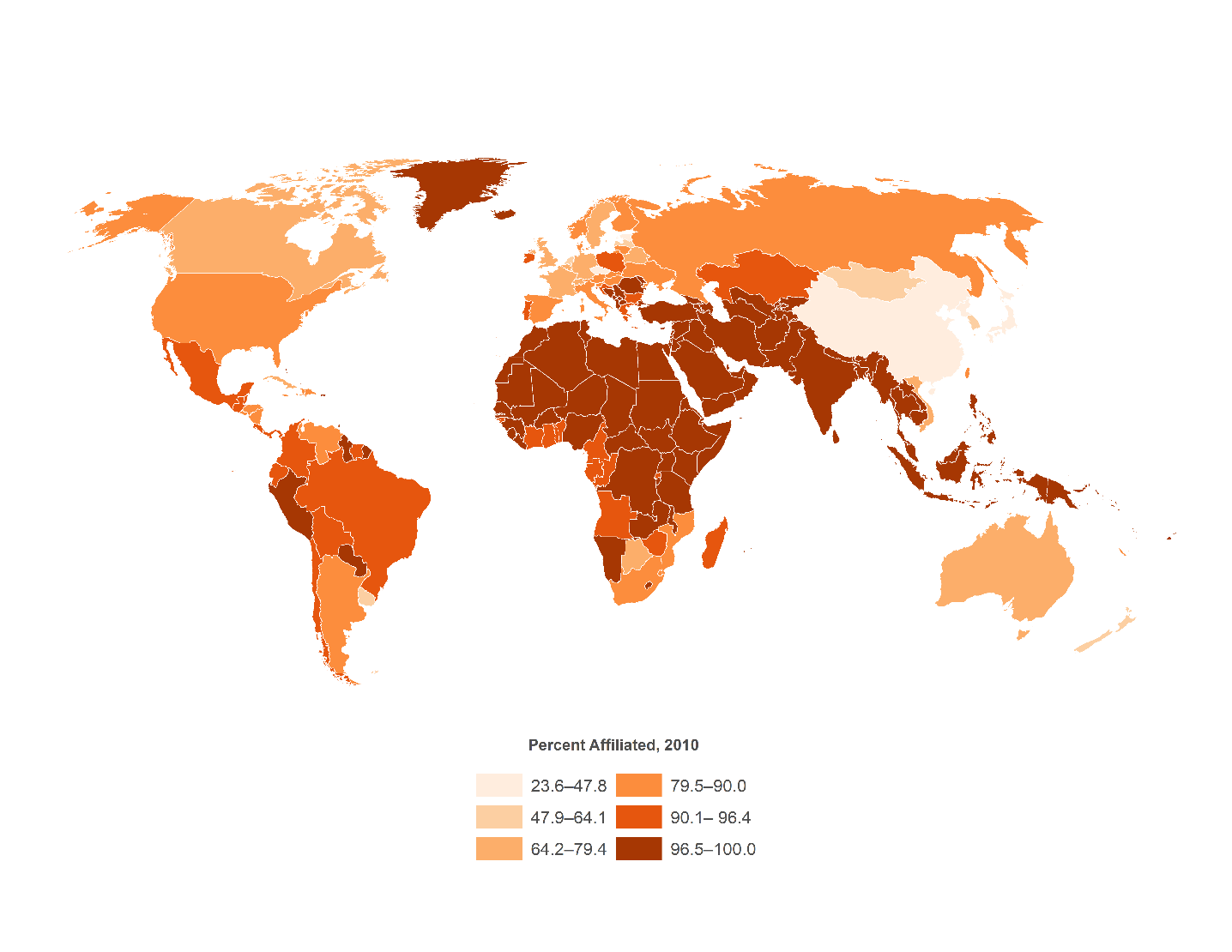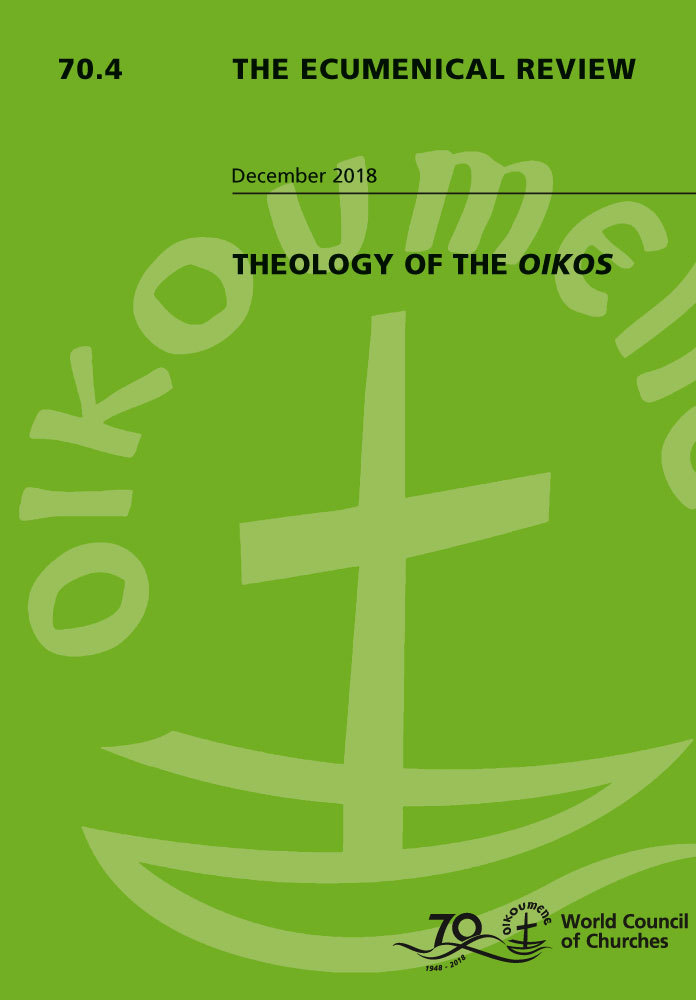Search
20 items
-
Dayton Divests
In June 2014, the University of Dayton became the first Catholic university in the United States to announce their divestment from coal and fossil fuels. Members of the university staff see this move as part of the university’s commitment to “being a responsible steward of the Earth’s natural resources.” This decision was commended by the president of the Association of Catholic Colleges and Universities. Their decision was one inspired by faith reflection as well as a commitment to financial stability for the university.
Beyond divesting from coal and fossil fuels, the university has taken further steps to move their campus toward efficiency and sustainability. The university now has two full time employees who work to improve campus sustainability and offers academic programs in these areas as well. The University of Dayton is also home to the Hanley Sustainability Institute. -
Pope Tells Oil Executives to Act on Climate: "There Is No Time to Lose’”
This past Saturday, the pope gathered leaders of the world’s largest oil companies for a closed-door conference at the Vatican. He commended oil and gas companies for progress made in developing more careful approaches to assess of climate risk and adjustments made to their business practices. However, these actions are not enough. Pressure has been building on oil and gas companies to transition to less polluting forms of energy, often coupled with the threat of fossil-fuel divestment.
The pope reiterated his call for a transition from fossil fuels “to a greater use of energy sources that are highly efficient while producing low levels of pollution.” He emphasized that the poor who would suffer the most from the effects global warming. And that we owe it to the poorer countries and future generations. -
Irish Bishops Announce Divestment from Fossil Fuels Ahead of the Pope's Visit
The Irish Catholic Bishops Conference announced it would divest from fossil fuels hours before the arrival of Pope Francis. The bishop's move means withdrawing investments in 200 oil and gas companies within five years. The bill was introduced in the Irish Parliament, requiring the country’s sovereign wealth fund to divest from all fossil fuels. If the Irish bill passes, it will make Ireland the first government to divest from fossil fuels. -
Presbyterians and Climate Change
This article posted on Yale Climate Connections discusses grassroots efforts of Presbyterian organizations, and notes specific time frames of salient Presbyterian accomplishments with regard to climate change. The following excerpt provides a general overview of their goals and mission:
"Presbyterians are engaged in many activities to combat climate change, from Earth Forums to hunger programs addressing food and climate crises and protests against practices that encourage reliance on coal. Since 2010, the Presbyterian Church has given 80 congregations an Earth Care Congregation Certification for demonstrating a strong commitment to environmental care." -
Episcopal Church, Church of Sweden, ELCA commitment: "Sustaining hope in the face of climate change"
The heads The Episcopal Church, the Church of Sweden, and the Evangelical Lutheran Church in America (ELCA) signed a joint commitment to climate statement. The following are five salient points from their commitment:
"1) Advocate for national and international policies and regulations that enable a swift transition from dependence on fossil fuels to clean, safe, renewable energy, and for economic systems that are fair and just.
2) Sustain an interfaith, international conversation around climate change and social and economic justice while working to keep climate change in the public’s attention.
3) Encourage our faith communities to deeper theological reflection on the moral and ethical response to climate change, and then to make public witness about climate change through advocacy at the local, national and international levels.
4) Invite our communities to prayerfully consider how their own actions, lifestyle choices – particularly our energy consumption -- affect the environment.
5) Offer our communities continued opportunities to learn about climate change and the universal church’s response to this crisis." -
The Jewish Cantor Raises Up Themes of Thanksgiving
Before the Thanksgiving holiday fades entirely from memory, I wanted to share a thoughtful op-ed published in the Richmond Times-Dispatch by Rachel Rhodes, a Jewish leader in Virginia. The link below discusses her reflections on Jewish links to the natural world and good tidings from the mountains. -
In Threatened Island Nation, Pope Hears Plea for Climate Action
Pope Francis visited Papua New Guinea, a Pacific Island nation facing serious environmental issues including water pollution, sea level rise, and deforestation. This continued his involvement in the discussion on climate change as he met with governor general Bob Dadae and spoke at meetings. The article covers the Pope's visit, the environmental challenges facing Papua New Guinea, and the ties between religious positions and care for the environment and people who are affected by climate change. -
Lutherans Reflect on Climate Change Conference in Copenhagen
This article discusses some of the sentiments regarding proceedings from the 2009 United Nations Climate Change Conference in Copenhagen. While some attendees expressed disappointment in the outcome, others were more optimistic about steps which may lead to more effective action for climate change in the future. The following excerpt provides a brief description of the event:
"More than 3,000 ELCA members, along with a coalition of U.S. faith leaders, sent some 20,000 postcards to President Barack Obama, urging him to be at the meeting, she said. Obama attended the conference and urged leaders of Brazil, China, India and South Africa to join the United States 'to fund developing nations' projects to deal with droughts,
floods and other impacts of climate change, and to develop clean energy,' among other agreements, according to a U.N. news release." -
Five Years After Speaking Out on Climate Change, Pope Francis Sounds an Urgent Alarm
This article covers Pope Francis's reaction to the world governments responses to climate change. The Pope writes to unite people through religion in an effort to bring awareness to the movement. The article details how the church is divesting in fossil fuel companies. The article also focuses on the political divide and how it affects people's views on the climate crisis. -
Environmental Stewardship and Conservation
An article under the Mormon Newsroom from the official website of The Church of Jesus Christ of Latter-day Saints that explains the Church teachings and stance regarding environmental stewardship and conservation. The article also links other Church video resources, as well as a few articles, resources, and a book titled, “Stewardship and the Creation: LDS Perspectives on the Environment”. The book is a compilation of 17 essays that aim to inspire Latter-day Saints to strongly consider the importance of being environmental stewards and protecting God’s creations. -
GOP Rep. Mike Simpson: "It’s my party, and I’ll fight climate change if I want to"
An article published on Grist.org that covers Congressman Mike Simpson's views on salmon conservation. Simpson's statements are noteworthy for sustainability and religion as he is going against Republican party views by acknowledging an issue with climate change and the environment with his religious views. It is reported that his speech was obviously fueled by a spiritual obligation to preserve salmon as he describes salmon as incredible God created creatures and that their cycle of life should not be messed with. It is also important to note he was already elected for his 11th term in the house, so it is less likely that his more left leaning statements come from a desire to secure votes. -
Overpopulation and the Lifeboat Metaphor: A Critique from an African Worldview
Many scientists have warned that the earth is nearing overpopulation or has already reached its carrying capacity. Garret Hardin proposed the lifeboat ethics metaphor to address this crisis and proper resource distributions. Okyere-Manu comments that this metaphor does not take into account the African political and cultural worldview. Hardin's metaphor is also reliant on inequality which disproportionately affects vulnerable communities. -
How to Green your Parish
This article is about the importance of parishes to participate in environmentally sustainable actions based on Pope Francis’s Laudato Si’. It encourages parishes to strive to become more eco-friendly by taking work together as a community and focusing on change one issue at a time. The article focuses on three main areas: reducing the parishes greenhouse gas, sustaining food and land use, and preserving water. -
The Wisdom of Houseplants
There has been a recent rise in the popularity of houseplants. This resource relates aspects of tending to houseplants to different ways you can be more mindful about your own life. Through caring for the houseplants, this web page reminds you to be adaptable, to be patient, and to expand yourself. While also additionally reminding the reader that letting go and paying attention to your physical health are both key in positive personal growth. -
Applying the hard lessons of coronavirus to the biodiversity crisis
In this article, Jamison Ervin, Manager of Nature for Development at UNDP, summarizes key lessons we have learned during the Covid-19 pandemic and how these can be applied to environmental protection efforts. -
Mercury Pollution a Concern of Evangelical Environmental Network
This article talks about mercury pollution and the pressing issues in need of attention and advocacy. The pro-life evangelicals have been pushing for more restrictions and regulations relating to mercury. This article intends to show how mercury poisoning hurts human lives and its different aspects that have long been overlooked. -
How Religion Influences Our Relationship With the Environment
This article, drawing references from a study in the Journal of Religion and Demography, summarizes how religions influence many environmentally relevant behaviors.
The author and his colleagues discovered that countries with a lower religious population utilize more resources and emit more emissions, but they are also better prepared to deal with the environmental difficulties that emerge since they are wealthier. On the other hand, countries with more religious populations tend to use fewer resources, but they also have less capability to address environmental concerns and are more vulnerable to negative consequences, owing to their high levels of poverty and continued population increase.
The link between religion, poverty, environmental impact, and governance is intricate and ever-evolving; the field continues to call for more research. -
People of faith are allies to stall climate change (Nature Magazine)
Tobias Müller is a political scientist who studies how religious groups respond to problems, from environmental crises to domestic violence to racism. In this article, he explores changes in the intersection of climate science and communities of faith. Müller shares with us patterns he's observed and strategies he's learned in his years in the field that help strengthen collaboration and the power to pursue climate justice. Some core ideas include:
1. Collaborate with religious scientists and local leaders.
2. Stories speak louder than graphs.
3. Talk about what matters to you and your audience. -
The 12 Principles of Permaculture: A Way Forward
This blog article describes the basics of permaculture (permanent culture). Permaculture is rooted in the observation of natural systems and indigenous knowledge. The author introduces the solution permaculture offers to help us transition to a more resilient, ethical, and sustainable future better for the planet and its inhabitants. -
Educational Programme: “The Use of Plants in the Worship of the Orthodox Church” and Its Contribution in Shaping Values of Sustainability
The goal is to connect children to nature with plants that have symbolic value to the bible. They created a Sunday School curriculum that will teach kids the value of having a connection with nature and God. 73% of the students that went through the course said that they cared more about the environment after taking the course.



